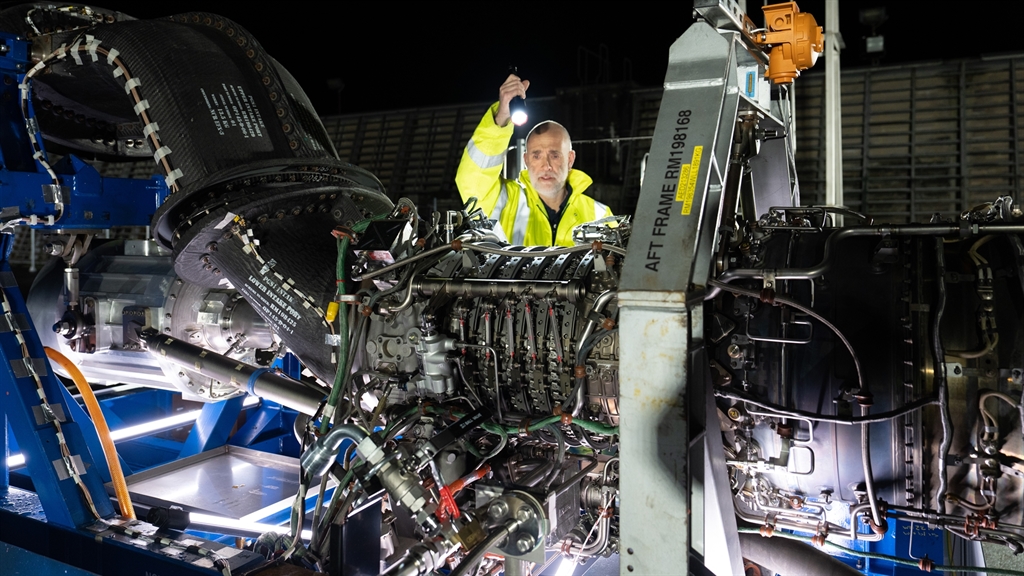London, UK, 2022-Nov-29 — /Travel PR News/ — Rolls-Royce and easyJet today (NOVEMBER / 28 2022) confirmed they have set a new aviation milestone with the world’s first run of a modern aero engine on hydrogen.
The ground test was conducted on an early concept demonstrator using green hydrogen created by wind and tidal power. It marks a major step towards proving that hydrogen could be a zero carbon aviation fuel of the future and is a key proof point in the decarbonisation strategies of both Rolls-Royce and easyJet.
Both companies have set out to prove that hydrogen can safely and efficiently deliver power for civil aero engines and are already planning a second set of tests, with a longer-term ambition to carry out flight tests.
The test took place at an outdoor test facility at MoD Boscombe Down, UK using a converted Rolls-Royce AE 2100-A regional aircraft engine. Green hydrogen for the tests was supplied by EMEC (European Marine Energy Centre), generated using renewable energy at their hydrogen production and tidal test facility on Eday in the Orkney Islands, UK.
Grazia Vittadini, Chief Technology Officer, Rolls-Royce, said: “The success of this hydrogen test is an exciting milestone. We only announced our partnership with easyJet in July and we are already off to an incredible start with this landmark achievement. We are pushing the boundaries to discover the zero carbon possibilities of hydrogen, which could help reshape the future of flight.”
Johan Lundgren, CEO of easyJet, said: “This is a real success for our partnership team. We are committed to continuing to support this ground-breaking research because hydrogen offers great possibilities for a range of aircraft, including easyJet-sized aircraft. That will be a huge step forward in meeting the challenge of net zero by 2050.”
Following analysis of this early concept ground test, the partnership plans a series of further rig tests leading up to a full-scale ground test of a Rolls-Royce Pearl 15 jet engine.
The partnership is inspired by the global, UN-backed Race to Zero campaign that both companies have signed up to, committing to achieve net zero carbon emissions by 2050.
About Rolls-Royce Holdings plc
- Rolls-Royce pioneers the power that matters to connect, power and protect society. We have pledged to achieve net zero greenhouse gas emissions in our operations by 2030 (excluding product testing) and joined the UN Race to Zero campaign in 2020, affirming our ambition to play a fundamental role in enabling the sectors in which we operate achieve net zero carbon by 2050.
- Rolls-Royce has customers in more than 150 countries, comprising more than 400 airlines and leasing customers, 160 armed forces and navies, and more than 5,000 power and nuclear customers.
- Annual underlying revenue was £10.95 billion in 2021, underlying operating profit was £414m and we invested £1.18 billion on research and development. We also support a global network of 28 University Technology Centres, which position Rolls-Royce engineers at the forefront of scientific research.
- Rolls-Royce Holdings plc is publicly traded company (LSE: RR., ADR: RYCEY, LEI: 213800EC7997ZBLZJH69)
About easyJet
easyJet is Europe’s leading airline offering a unique and winning combination of the best route network connecting Europe’s primary airports with great value fares and friendly service. The airline joined the UN Race to Zero campaign in November 2021 and has recently published its roadmap to net zero carbon emissions by 2050, with a focus on new technology, such as hydrogen, and the ultimate ambition to achieve zero carbon emission flying across its entire fleet, which the airline is working on together with its partners including Airbus, Rolls-Royce, GKN Aerospace and Cranfield Aerospace Solutions. The roadmap also features a combination of fleet renewal, operational efficiencies, airspace modernisation, Sustainable Aviation Fuel and carbon removal technology. Additionally, it includes an interim carbon emissions intensity reduction target of 35% by 2035. Since 2000, easyJet has already reduced its carbon emissions per passenger, per kilometre by one-third.
Contact:
Press Office
01582 525252
www.easyJet.com
@easyJet_Press
Source: easyJet
###

